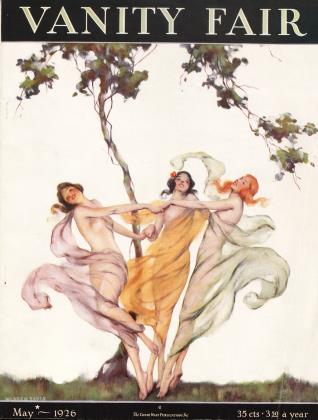Sign In to Your Account
Subscribers have complete access to the archive.
Sign In Not a Subscriber?Join NowAn American Literary Phenomenon—Theodore Dreiser
IN the long run, perhaps, Theodore Dreiser will hold his place in the literature books, not so much because of his virtues as an artist as because of his virtues as a man. It is his immense resolution, his colossal fixity of purpose, that has got him where he is. Certainly no man of comparable bulk ever had to weather worse storms in his own country. His enemies denounced his matter and called upon the police to put him down; his friends lamented his manner and urged him piteously to better it. He simply plodded on. Now his enemies are unhorsed and ridiculous, and his friends are resigned. He continues to plod on. For years that plodding of his made the only track through the wilderness. He was the American novel. Of late a generation he brought into being has begun to challenge him, and, in more than one way, to sound effect. Unmoved by rivalry as he was unmoved by opposition, he continues faithful to his blowsy cliches, his impossible adverbs, his maniacal syntax. To read him is to cough sadly. But the cough passes, and something remains. That something is a fine and exhilarating sense of contact with reality, the katharsis of poignant feeling profoundly experienced, a renewed and vibrant comprehension of the eternal tragedy of man. Dreiser can feel, and, feeling, he can move. The others are very skillful with words.—H. L. MENCKEN
H. L. MENCKEN
 View Full Issue
View Full Issue






Subscribers have complete access to the archive.
Sign In Not a Subscriber?Join Now